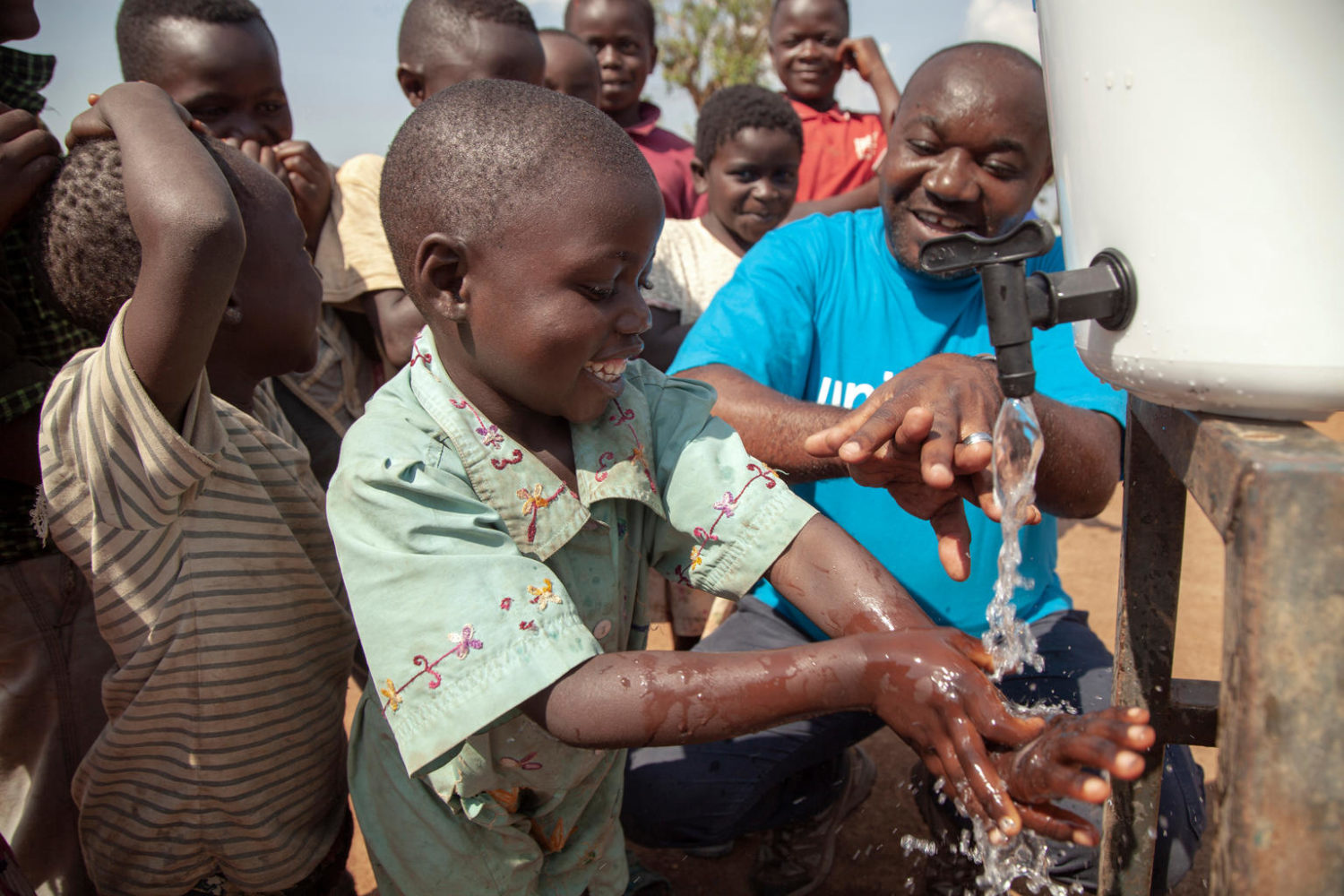Photos and b-roll are available for download here.
28 September 2018 – Recent survivors of the Ebola virus and UNICEF are partnering to help prevent further transmission of the deadly disease in the eastern Democratic Republic of the Congo (DRC). As part of this effort, the survivors share their stories during public events and through public radio in Ebola-affected communities.
Forty-three people have survived the Ebola virus since the beginning of the latest outbreak in August.
“The survivors are living proof that it is possible to recover from the Ebola virus disease, especially if it is detected and treated early,” said Dr. Gianfranco Rotigliano, UNICEF Representative in the DRC. “The testimonies of these Ebola survivors help us to reduce fear in communities and encourage people with Ebola-like symptoms to seek early treatment, thereby avoiding the risk of further contamination.”
Lack of awareness of prevention measures and treatment of the disease among the population increases the risk of further spread of the disease, as shown by the newly confirmed case of Ebola in the Tchomia health zone. In response to this case, UNICEF has deployed a team to help with the Ebola response put in place by the Government and now has response teams operating in Mangina, Beni, Butembo and Tchomia.
Survivors’ testimonies in Mangina, the most-affected health area in the current epidemic, have already been effective. Thanks to the increased trust in Ebola treatment centres, better understanding of the importance of early detection and follow-up on suspected cases, as well as increased knowledge of prevention measures, the area has experienced a significant reduction in the rate of new confirmed Ebola cases.
UNICEF is also starting to work with the first Ebola survivors from Ndindi, a neighbourhood in the city of Beni, the other epicentre of the epidemic.
“Giving Ebola survivors the opportunity to share their experiences publicly also contributes to reducing stigma,” said Dr. Rotigliano. “It gives survivors a positive role in their communities and helps them recover from the impact of having been infected by the virus.”
UNICEF and its partners continue to provide Ebola survivors with psychosocial and material assistance, in addition to the support provided to families and children affected by the disease.
###
Ends
Notes to editors:
Photos and b-roll are available for download here.
For more information, please contact:
Unicef UK Media Team, 0207 375 6030, [email protected]
About Unicef
Unicef is the world’s leading organisation for children, promoting the rights and wellbeing of every child, in everything we do. Together with our partners, we work in 190 countries and territories to translate that commitment into practical action, focusing special effort on reaching the most vulnerable and excluded children, to the benefit of all children, everywhere.
Unicef UK raises funds to protect children in danger, transform their lives and build a safer world for tomorrow’s children. As a registered charity we raise funds through donations from individuals, organisations and companies and we lobby and campaign to keep children safe. Unicef UK also runs programmes in schools, hospitals and with local authorities in the UK.
For more information please visit unicef.org.uk


